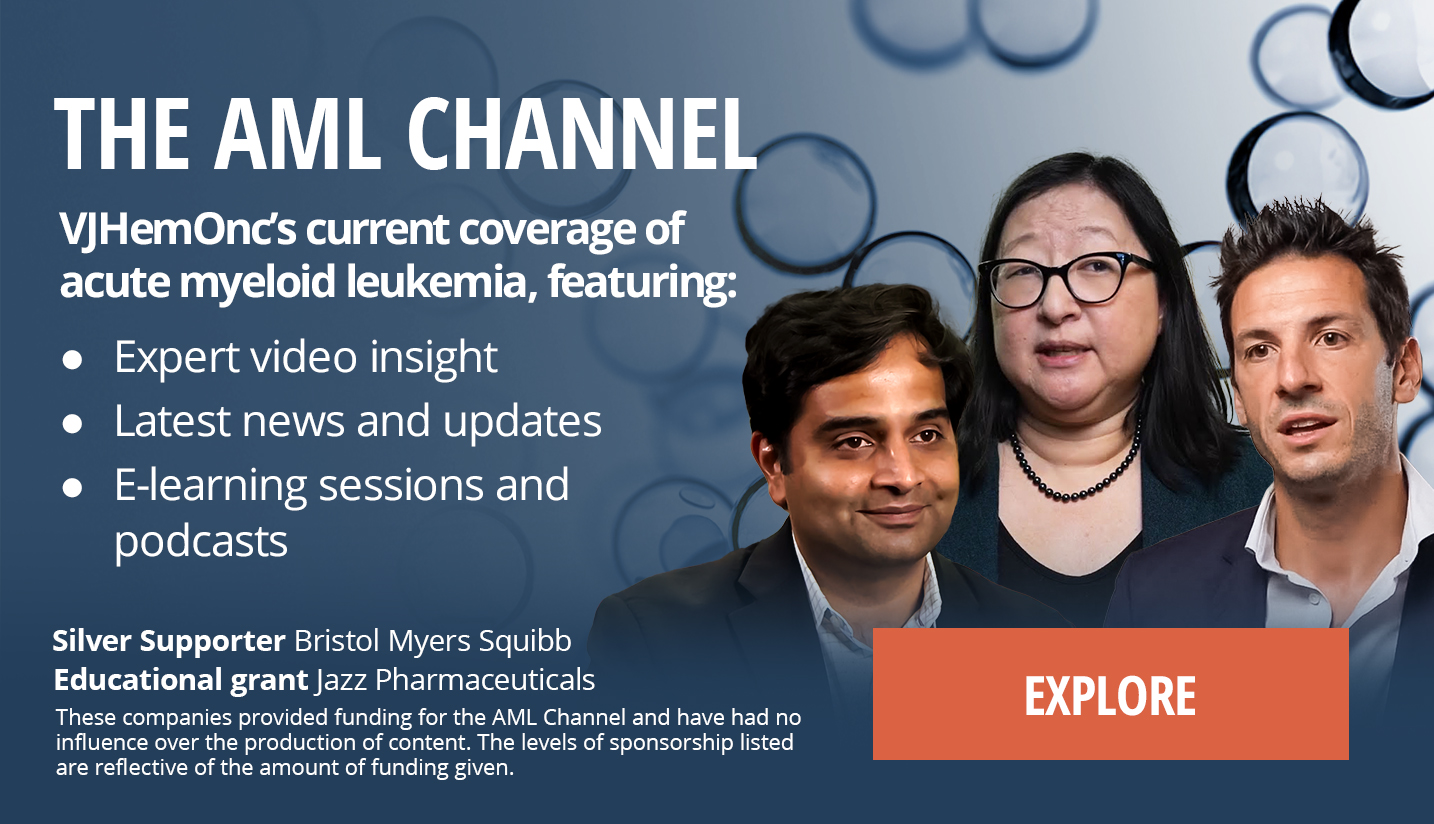AML relapse is a challenging situation. We are able to get about 80% of patients into remission right now with just intensive chemotherapy. However, more than half of them will eventually relapse and relapse is threatening long-term remission and actually life. And so many good options to have at the relapse situation is key to successful AML management. And if we look at the situation where we have no targetable lesions in patients, it’s difficult actually to combat relapse, in particular if we don’t have allogeneic stem cell transplantation available...
AML relapse is a challenging situation. We are able to get about 80% of patients into remission right now with just intensive chemotherapy. However, more than half of them will eventually relapse and relapse is threatening long-term remission and actually life. And so many good options to have at the relapse situation is key to successful AML management. And if we look at the situation where we have no targetable lesions in patients, it’s difficult actually to combat relapse, in particular if we don’t have allogeneic stem cell transplantation available. So if we look at conventional agents such as hypomethylating agents or even conventional cytostatics such as melphalan, we have remission rates only around 10 to 20 percent and overall survival that is just below six months. So the hope is with targeted agents and we have targetable lesions at around 50 percent available in the relapsed situation to achieve higher remission rates and also longer overall survival. Those targeted agents that are currently approved by the FDA are menin inhibitors, FLT3 inhibitors, IDH inhibitors, gemtuzumab ozogamicin, which is an ADC against CD33, and also venetoclax, if you will, which is a BCL2 inhibitor. However, that works kind of beyond BCL2 inhibition or BCL2 mutation or overexpression. And integrating those targeted agents in the relapsed setting can mean two things. One opportunity or one scenario could be to use them as a bridge to allotransplant with lower toxicity and the other option in patients who cannot go to transplant is to just give them as a low intensity, low toxicity, well tolerability regimen and in that setting we still can achieve more than 8, 9, 10 months of overall survival even in the relapsed/refractory setting. The obstacles we have for targeted agents in the relapsed/refractory setting at the moment is we have too few targets and too few targeted agents actually available or approved. Most of them are only approved by the FDA. And second also we need more randomized comparisons and more studies combining targeted agents with each other to improve outcomes.
This transcript is AI-generated. While we strive for accuracy, please verify this copy with the video.















